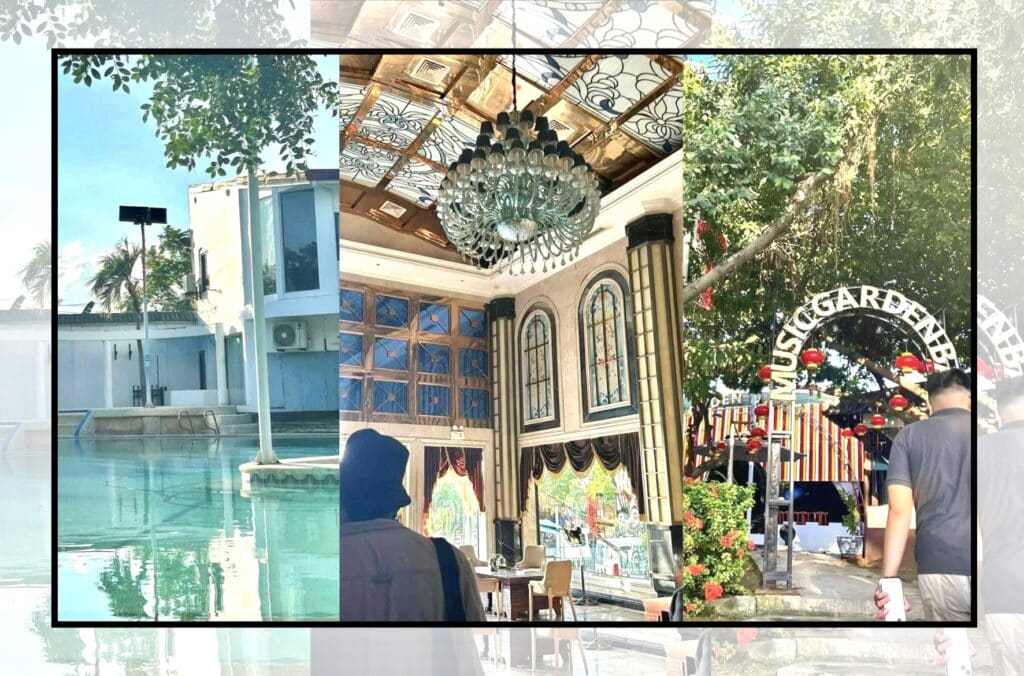
A swimming pool, bar, restaurant, and entertainment area were found inside a hotel in Brgy. Agus, Lapu-Lapu City, Cebu that was later identified as a Pogo hub, where 169 foreign nationals were allegedly detained against their will. CDN Photo | Emmariel Ares
CEBU CITY, Philippines – In less than two months, authorities have uncovered two alleged Philippine Offshore Gaming Operators (Pogo) hubs in Cebu province.
This came shortly after the raid of several Pogo hubs in the municipality of Bamban in the province of Tarlac, an incident that has opened up a wider investigation on the alleged involvement of a former mayor and several other Chinese nationals.
Last August 31, a hotel exclusively used by 169 foreigners located in Brgy. Agus, Lapu-Lapu City, Cebu was identified to be a Pogo hub.
What started as a rescue operation turned into a raid after law enforcers discovered the large group of foreign nationals and the numerous electronic devices inside the hotel, sparking suspicions of illegal activities.
Two months later, a routine inspection of an isolated resort located seven kilometers from the highway in Barangay Saavedra, Moalboal town led to the discovery of 38 undocumented Chinese nationals and several pieces of electronics.
READ MORE:
Moalboal Pogo hub: Chinese nationals may be part of Lapu-Lapu group
While authorities are yet to confirm its status, several indicators and the similar pattern of its operations to the Lapu-Lapu hotel suggest that it is indeed a Pogo hub.
According to police, the resort would not look suspicious to outsiders. In fact, the discovery stemmed solely because of a request for high-speed internet in the small resort.
However, there are tell-tale signs that could make anyone suspicious of the possible presence of a Pogo hub. These indicators could help anyone detect illegal activities and promptly report to the proper authorities.
Pogo hub indicators
Police Lieutenant Colonel Gerard Ace Pelare, spokesperson of the Police Regional Office in Central Visayas (PRO-7), revealed that these indicators are:
1. If there are numerous foreign nationals, who do not usually leave the premises, present inside the establishment
2. If the place is isolated and heavily fortified with the installment of several CCTV cameras and tall fences
3. If there are many computer sets and other electronic devices inside the establishment
4. If the place is being rented exclusively
While an investigation is necessary to confirm if a place is conducting Pogo-like activities, Pelare said that these signs could help civilians detect suspicious establishments, whether in urban or rural locations.
“Then our community in Central Visayas, our very responsive community, can report it to the local government unit or to the Philippine National Police so that we can take action on that information,” he stated.
Law enforcers have an ongoing nationwide campaign against the proliferation of Pogo hubs, particularly after it was completely banned by President Ferdinand Marcos Jr. earlier this year.
Pelare said that this is a work in progress. He added that operations like what happened in Cebu recently are a good start showing that local authorities can identify these illegal establishments with the help of the public.
PRO-7 regional director Police Brigadier General Anthony Aberin, for his part, said that they are continuously conducting inspections despite not monitoring any other Pogo hubs in the region as of this writing.
Aberin also urged the members of the community to be wary of the signs and to promptly inform law enforcement units who will then be launching a deeper investigation.
“Sa ating mga kababayan dito sa Region 7, ipagpa-alam po natin sa ating mga kapulisan kung may mga na-oobserbahan nating mga presence ng mga foreign nationals or any other individuals na kahinahinala sa inyong lugar. Kasi, kayo yung unang nakaka-observe kung sino yung mga bagong tao sa inyong mga barangay. Then, of course, with your report we will act immediately and we’ll act accordingly based dun sa mga established legal proceedings,” he stated.